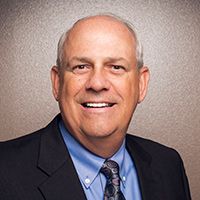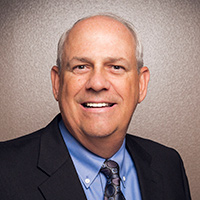5 Considerations When Developing Your Retirement Income Game Plan
Saving for retirement is one thing. Finding a way to turn that money into an income stream that will last for decades is another.


Profit and prosper with the best of Kiplinger's advice on investing, taxes, retirement, personal finance and much more. Delivered daily. Enter your email in the box and click Sign Me Up.
You are now subscribed
Your newsletter sign-up was successful
Want to add more newsletters?

Delivered daily
Kiplinger Today
Profit and prosper with the best of Kiplinger's advice on investing, taxes, retirement, personal finance and much more delivered daily. Smart money moves start here.

Sent five days a week
Kiplinger A Step Ahead
Get practical help to make better financial decisions in your everyday life, from spending to savings on top deals.

Delivered daily
Kiplinger Closing Bell
Get today's biggest financial and investing headlines delivered to your inbox every day the U.S. stock market is open.

Sent twice a week
Kiplinger Adviser Intel
Financial pros across the country share best practices and fresh tactics to preserve and grow your wealth.

Delivered weekly
Kiplinger Tax Tips
Trim your federal and state tax bills with practical tax-planning and tax-cutting strategies.

Sent twice a week
Kiplinger Retirement Tips
Your twice-a-week guide to planning and enjoying a financially secure and richly rewarding retirement

Sent bimonthly.
Kiplinger Adviser Angle
Insights for advisers, wealth managers and other financial professionals.

Sent twice a week
Kiplinger Investing Weekly
Your twice-a-week roundup of promising stocks, funds, companies and industries you should consider, ones you should avoid, and why.

Sent weekly for six weeks
Kiplinger Invest for Retirement
Your step-by-step six-part series on how to invest for retirement, from devising a successful strategy to exactly which investments to choose.
Dreaming about what you’ll do in retirement is exhilarating. It’s fun to think about golfing and grandkids, cruising the Rhine or maybe relocating to the sunny South.
Planning how you’ll pay for it? Not so much.
Figuring out how to turn your nest egg into an income stream you can live on for decades is tedious, worrisome stuff that often leads to doing nothing at all. In one study, 43% of Americans surveyed said their No. 1 fear in retirement was the possibility of outliving their savings. And yet many are unwilling or incapable of putting together a retirement income plan that will last 10, 20, 30, perhaps even 40 years. Worse yet, there are many who trust financial professionals who don’t specialize in this area of financial planning, either!
From just $107.88 $24.99 for Kiplinger Personal Finance
Become a smarter, better informed investor. Subscribe from just $107.88 $24.99, plus get up to 4 Special Issues

Sign up for Kiplinger’s Free Newsletters
Profit and prosper with the best of expert advice on investing, taxes, retirement, personal finance and more - straight to your e-mail.
Profit and prosper with the best of expert advice - straight to your e-mail.
There are so many theories floating around out there regarding the best ways to save and invest, so it’s no wonder the average consumer is confused. Depending on the strategy you choose , it could mean a difference of thousands of dollars in income EVERY MONTH. Or worse — you might not have enough money to live on in the later years of your life.
Here are five considerations to developing a retirement game plan:
1. Prepare for inflation.
Inflation is often overlooked in financial planning. When it comes to retirement income planning, you’re making decisions today that can affect you decades down the road. If you don’t have a plan for income, you could bank on an income stream in a few decades that won’t cover your costs. Usually 3% is the recommended inflation percentage to plan for. Your Social Security benefits may see some adjustments from year to year, but IRAs, pensions and other retirement vehicles typically won’t have any built-in protections against inflation. So, it’s up to you and your financial professional to determine how much you’ll need at different stages of your life, and then how and when you’ll turn on your various income streams to make the most of what you have.
2. Plan for taxes.
If you don’t want to think about your retirement savings, it’s very unlikely you want to think about taxes. Many people underestimate the amount of planning required to avoid year-end surprises. Or they pay taxes on money they’re not using, which is often a big mistake. You should be as cognizant of changes to your tax bracket as you are to changes in your weight. Don’t count on your tax preparer to alert you to the long-term strategies that can save you. Rather, it’s recommended you work with a financial planner who considers taxes in their planning and a CPA or accountant who engages in tax planning.
3. Separate the expenses you need to cover in retirement into two categories.
In retirement, you’ll have your fixed expenses and your variable expenses. Fixed expenses are things you must cover every single month no matter what, such as your water bill, your electric bill and grocery bill. Your variable expenses are things you’d like to pay for, such as dining out, green fees and going out to movies. When deciding which vehicles you’ll use to cover those expenses, it’s recommended you use a reliable income stream for your fixed expenses, and you can use variable income streams with larger upside potential for your lifestyle expenses.
4. Know how much of your retirement income is variable.
In retirement, you don’t want to have to worry about whether you’ll be able to pay your water bill, your grocery bill or cellphone bill. When considering what retirement income strategy to employ, ask the question, “How much of this income is consistent, and how much could fluctuate?” We find very often that people go into retirement with almost all of their money at risk and no planned income that is reliable or consistent. This can spell disaster down the road.
5. Work with a “retirement” coach.
Make sure you work with someone who specializes in retirement income planning. A traditional financial professional can help you through the accumulation phase of your financial life, but when you’re nearing the preservation and distribution phase, you need someone who can educate you on all the options available. Look for someone who stays up to date on the growing number of income strategies and understands there is no such thing as one size fits all.
As politics and the economy grow ever more unpredictable, both in the U.S. and globally, you must take charge of your own future. Educate yourself: Make sure you’re working with an adviser who focuses on the areas you need. Don’t make the same mistake many Americans do, which is spending more time planning for their next vacation than they do their retirement.
Kim Franke-Folstad contributed to this article.
Jeff Dixson offers securities and advisory services through Madison Avenue Securities, LLC (MAS), member FINRA & SIPC, A Registered Investment Advisor. MAS and NW Financial & Tax Solutions are not affiliated companies.
Profit and prosper with the best of Kiplinger's advice on investing, taxes, retirement, personal finance and much more. Delivered daily. Enter your email in the box and click Sign Me Up.

Jeff Dixson is president and CEO at Northwest Financial and Tax Solutions Inc. and is an Investment Adviser Representative and insurance professional. He hosts a weekly radio show, "The Jeff Dixson Show: The Retirement Coach," and is the author of "Winning the Retirement Game."
-
 Nasdaq Leads a Rocky Risk-On Rally: Stock Market Today
Nasdaq Leads a Rocky Risk-On Rally: Stock Market TodayAnother worrying bout of late-session weakness couldn't take down the main equity indexes on Wednesday.
-
 Quiz: Do You Know How to Avoid the "Medigap Trap?"
Quiz: Do You Know How to Avoid the "Medigap Trap?"Quiz Test your basic knowledge of the "Medigap Trap" in our quick quiz.
-
 5 Top Tax-Efficient Mutual Funds for Smarter Investing
5 Top Tax-Efficient Mutual Funds for Smarter InvestingMutual funds are many things, but "tax-friendly" usually isn't one of them. These are the exceptions.
-
 Social Security Break-Even Math Is Helpful, But Don't Let It Dictate When You'll File
Social Security Break-Even Math Is Helpful, But Don't Let It Dictate When You'll FileYour Social Security break-even age tells you how long you'd need to live for delaying to pay off, but shouldn't be the sole basis for deciding when to claim.
-
 I'm an Opportunity Zone Pro: This Is How to Deliver Roth-Like Tax-Free Growth (Without Contribution Limits)
I'm an Opportunity Zone Pro: This Is How to Deliver Roth-Like Tax-Free Growth (Without Contribution Limits)Investors who combine Roth IRAs, the gold standard of tax-free savings, with qualified opportunity funds could enjoy decades of tax-free growth.
-
 One of the Most Powerful Wealth-Building Moves a Woman Can Make: A Midcareer Pivot
One of the Most Powerful Wealth-Building Moves a Woman Can Make: A Midcareer PivotIf it feels like you can't sustain what you're doing for the next 20 years, it's time for an honest look at what's draining you and what energizes you.
-
 I'm a Wealth Adviser Obsessed With Mahjong: Here Are 8 Ways It Can Teach Us How to Manage Our Money
I'm a Wealth Adviser Obsessed With Mahjong: Here Are 8 Ways It Can Teach Us How to Manage Our MoneyThis increasingly popular Chinese game can teach us not only how to help manage our money but also how important it is to connect with other people.
-
 Looking for a Financial Book That Won't Put Your Young Adult to Sleep? This One Makes 'Cents'
Looking for a Financial Book That Won't Put Your Young Adult to Sleep? This One Makes 'Cents'"Wealth Your Way" by Cosmo DeStefano offers a highly accessible guide for young adults and their parents on building wealth through simple, consistent habits.
-
 Global Uncertainty Has Investors Running Scared: This Is How Advisers Can Reassure Them
Global Uncertainty Has Investors Running Scared: This Is How Advisers Can Reassure ThemHow can advisers reassure clients nervous about their plans in an increasingly complex and rapidly changing world? This conversational framework provides the key.
-
 I'm a Real Estate Investing Pro: This Is How to Use 1031 Exchanges to Scale Up Your Real Estate Empire
I'm a Real Estate Investing Pro: This Is How to Use 1031 Exchanges to Scale Up Your Real Estate EmpireSmall rental properties can be excellent investments, but you can use 1031 exchanges to transition to commercial real estate for bigger wealth-building.
-
 Should You Jump on the Roth Conversion Bandwagon? A Financial Adviser Weighs In
Should You Jump on the Roth Conversion Bandwagon? A Financial Adviser Weighs InRoth conversions are all the rage, but what works well for one household can cause financial strain for another. This is what you should consider before moving ahead.